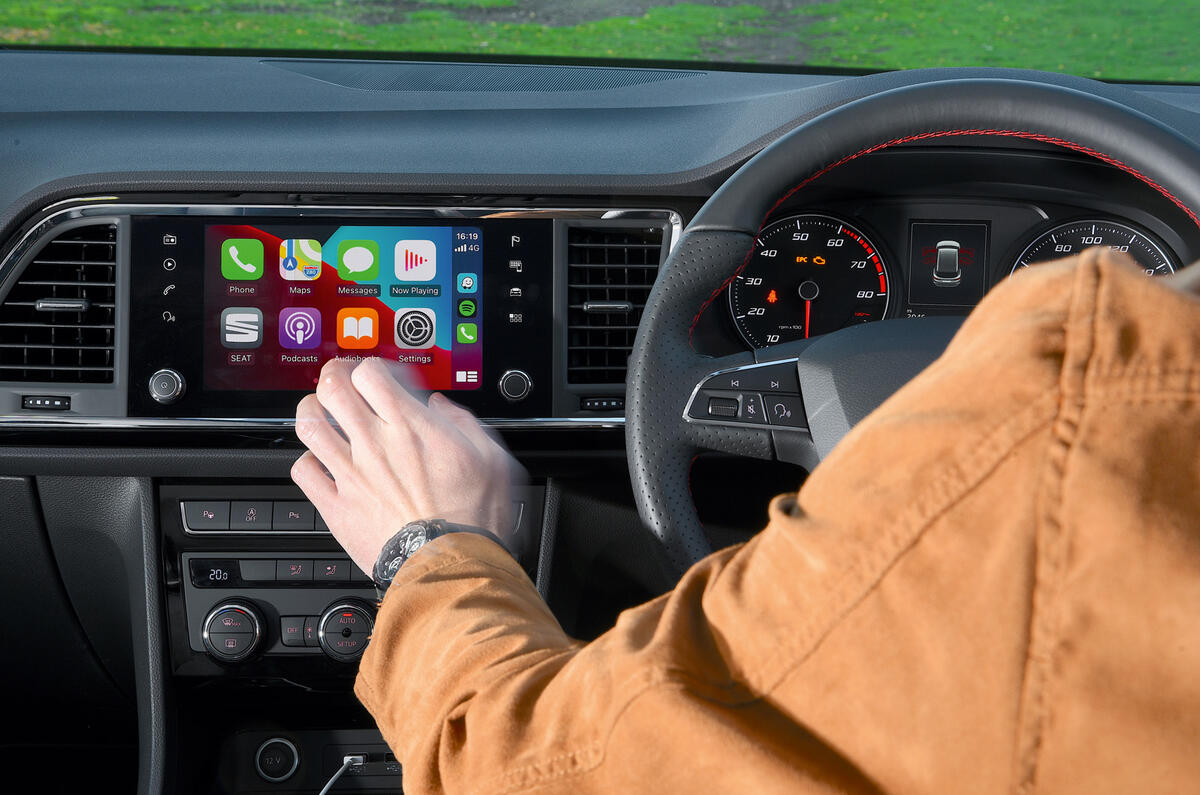Perhaps you, like me, were surprised when the government announced plans to tighten the use of phones while driving last month. From next year, anyone caught holding a phone to take photos, pick music or play a game while driving faces a £200 fine and six points on their licence. Previously, police had to prove a charge of dangerous driving to prosecute anyone doing those things – a loophole that was often exploited.
While it seems an obvious move, considering the link between paying attention and driving safely, it also suggests that the pace of technological advancement is moving far faster than the legal framework. In a world where eating an apple could land you in hot water for careless driving, it seems questionable why putting your phone into a fixed holder suggests legality and downright ludicrous why so many car controls are being buried layers deep into infotainment systems, making drivers take their eyes off the road when previously an intuitive button push would do.
The Department for Transport records that in 2019 (which we must take as the last year of normal statistics for now), there were 2563 road crashes in the UK in which distraction was a contributory factor – about 3% of the total. No wonder: the Transport Research Laboratory (TRL) last year revealed that the concentration level required to work some touchscreens put drivers more at risk than if they were using a handheld phone, and sometimes more so than if they were drunk or on drugs.
A two-second distraction doubles your risk of an accident, yet TRL found that some systems need up to 20 seconds of concentration.
We’ve got here partly through demand: so much of our lives are spent using phones that the assumption has been made that we want to take that environment with us wherever we go. Some of it is marketing, Tesla having led the way in using a screen to physically demonstrate shifting lines of tech. Certainly too there’s an element of cost-saving: if a screen can do it all, why spend even a few pounds on buttons that could instead be put on the bottom line?
The trend is universal, but seemingly no lawmaker has yet stepped up to dial back their use. And the new car launches at the Los Angeles motor show suggest that the lag between common-sense lawmaking and car makers’ unapologetic pursuit of this trend is only widening.
Worryingly, statistics suggest that while 90% of us say we wouldn’t use a distracting system, more than half admit we have. Yet for now, self-governance appears to be the only form of governance that we have.




Join the debate
Add your comment
How much in Car tech is essential?, what Car tech sells Cars?, I think there's too much non essential stuff in Cars, in Days gone by a Radio and CD player and conver with your passenger/s was all you needed, now you can virtually work from your Cars while driving, some drivers actually believe the safety tech fitted will save them, using mobiles in any form should only be possible once you stopped somewhere safe which is a concept most will recoil from , and of course, good old common sense, something a few of us have a problem with.
How about actually looking at the stats for how many people are killed on the roads by inattentive drivers on mobiles.
The answers as best the police can assertain is about 20 a year.
Simply speaking most accidents happen at junctions and other points of conflict or around corners and other points where a vehicle can leave its lane.
Driving while distracted has always been more of a moral panic than a big killer, hence why the law has always set out to criminalise a tiny proportion of it to appease campiagners rather than be logical and ban or allow all comparable activities.
Before sat navs drivers were wrestling maps, reading itineries or just stressed and lost none of which was good for safety either.
And tell me, what's the Police view on this?, do they have the manpower or technology to catch offenders?, I think it's an almost unenforceable Law, why not just give the option to switch off what we don't use?